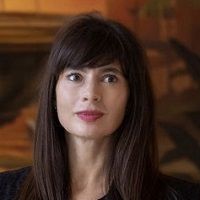Wealth Is More Than Just Your Money: How to Manage It All
In addition to handling your financial wealth, consider ways to manage your non-financial assets: health, knowledge, time and relationships.


Profit and prosper with the best of Kiplinger's advice on investing, taxes, retirement, personal finance and much more. Delivered daily. Enter your email in the box and click Sign Me Up.
You are now subscribed
Your newsletter sign-up was successful
Want to add more newsletters?

Delivered daily
Kiplinger Today
Profit and prosper with the best of Kiplinger's advice on investing, taxes, retirement, personal finance and much more delivered daily. Smart money moves start here.

Sent five days a week
Kiplinger A Step Ahead
Get practical help to make better financial decisions in your everyday life, from spending to savings on top deals.

Delivered daily
Kiplinger Closing Bell
Get today's biggest financial and investing headlines delivered to your inbox every day the U.S. stock market is open.

Sent twice a week
Kiplinger Adviser Intel
Financial pros across the country share best practices and fresh tactics to preserve and grow your wealth.

Delivered weekly
Kiplinger Tax Tips
Trim your federal and state tax bills with practical tax-planning and tax-cutting strategies.

Sent twice a week
Kiplinger Retirement Tips
Your twice-a-week guide to planning and enjoying a financially secure and richly rewarding retirement

Sent bimonthly.
Kiplinger Adviser Angle
Insights for advisers, wealth managers and other financial professionals.

Sent twice a week
Kiplinger Investing Weekly
Your twice-a-week roundup of promising stocks, funds, companies and industries you should consider, ones you should avoid, and why.

Sent weekly for six weeks
Kiplinger Invest for Retirement
Your step-by-step six-part series on how to invest for retirement, from devising a successful strategy to exactly which investments to choose.
These days, people are increasingly interested in thinking about wealth in a holistic way, in a multidimensional way — after all, wealth is more than money. Your assets also include your health, knowledge, time and relationships. This view of wealth invites a comprehensive approach to wealth management beyond your finances.
Here are five ways to manage and optimize returns across your financial and non-financial assets:
1. Money and investments
Making money is important, but so, too, is thoughtfully investing the excess as soon as practical, because this is where the real financial growth can happen. The earlier you invest your money, the earlier you can benefit from the power of compounding. Compounding is the money you earn (over time) on both your initial investment and the accumulated interest. This is why contributing to your retirement plan as early and as frequently as possible is recommended.
From just $107.88 $24.99 for Kiplinger Personal Finance
Become a smarter, better informed investor. Subscribe from just $107.88 $24.99, plus get up to 4 Special Issues

Sign up for Kiplinger’s Free Newsletters
Profit and prosper with the best of expert advice on investing, taxes, retirement, personal finance and more - straight to your e-mail.
Profit and prosper with the best of expert advice - straight to your e-mail.
You can put this into practice by enrolling in your employer’s retirement plan and company match, all the while opting for automatic savings so you don’t have to think about it. Additionally, contributing to a traditional IRA or Roth IRA can help you to build and optimize your financial wealth.
Of course, consulting with a financial adviser who can help you with these things would be optimal.
2. Health and quality of life
You can achieve significant long-term benefits when you diligently track, monitor and manage your health. In fact, you could track your health like you track your money — budget your calories like you budget your dollars.
Wearables and apps can help with that. An Apple Watch or Oura Ring, for example, can monitor your steps, sleep and heart rate, and the data is available to view via the corresponding app on your phone.
Let’s take this one step further (pun intended): Good health enhances your productivity and decision-making capabilities, which directly impact your financial wealth. This correlation is well-researched and documented.
3. Knowledge, status and influence
We’ve all heard that knowledge is power. Getting ahead in your career is often based on what you know, so continually learning all you can to benefit both your career and your financial well-being is paramount. The more you know, the more status and influence you have, too.
Many people embrace the “life-long learner” mindset, which is particularly important these days as so much change is underway. Consistently expanding your knowledge enables you to stay relevant and valuable, for the benefit of yourself and others — both at work and in your community.
Further, sharing what you know with others through mentoring, volunteering and/or serving on company boards can also add to your status and influence.
4. Time, energy and experiences
Time and energy are finite resources, which is exactly why masterfully managing these assets is important. Consider outsourcing onerous to-dos where possible so that you have more time and energy to spend elsewhere. For example, if you find cleaning your home has a low return on investment for you, then you can hire someone to do it for you. The time and energy saved can then be allocated to other things.
Consider investing your time and energy in experiences that are valuable to you. Perhaps you enjoy hikes in nature or hosting fun dinners with family and friends. These experiences add to the richness of your life — and also enhance the assets of health and relationships.
5. Relationships with self and others
You are your greatest asset, which is why any investment into understanding yourself is an unequivocal win. For example, understanding your values sheds light on the “whys” behind your behaviors and decisions — economic or otherwise. There are many values exercises available, including one detailed in my book (info below). Further, the strength of your relationship with self is the foundation on which other relationships are built.
As for relationships with others, it’s beneficial to spend time with people who inspire you, who dream big and who encourage you to do the same. As the saying goes: “You’re the sum of the company you keep.”
By giving and receiving the assets of time, energy and knowledge, you’re able to build relationship capital. And throughout these exchanges, you can use questions as a way to unlock ideas and insights from/for others. Given the resources needed for building relationships, it’s important to consciously decide which you want to invest in and why. From there, you can intentionally pursue connections.
These are five ways to manage your financial and non-financial assets for optimal returns, through the framework of the 5 Principles of Invisible Wealth™, which I explore in-depth in my book Invisible Wealth: 5 Principles for Redefining Personal Wealth in the New Paradigm. Making and investing money is important, but so, too, is investing in your health, time, knowledge and relationships. Adopting a comprehensive approach to wealth can improve the richness of your life.
Related Content
- What Is Wealth? Shifting Values Change What It Means to Many
- How Might the Great Wealth Transfer Change Society?
- Being Rich vs Being Wealthy: What’s the Difference?
- Key to a Happy Retirement? Finding Yourself
- The Five Stages of Retirement (and How to Skip Three of Them)
Profit and prosper with the best of Kiplinger's advice on investing, taxes, retirement, personal finance and much more. Delivered daily. Enter your email in the box and click Sign Me Up.

Recently named one of the Top 100 Women of the Future, Jennifer is a certified Private Wealth Advisor who founded Invisible Wealth, which provides strategic, future-forward, consultancy services. Jennifer has worked at some of the top Private Wealth Management institutions in the world, namely Goldman Sachs, JPMorgan and Fidelity. She earned her Juris Doctor from Suffolk University Law School in Boston and her Certified Private Wealth Advisor designation from Booth Business School in Chicago. While at Fidelity, she developed a proof of concept and prototype for an enterprise solution, which was advanced into incubation.
-
 Dow Adds 1,206 Points to Top 50,000: Stock Market Today
Dow Adds 1,206 Points to Top 50,000: Stock Market TodayThe S&P 500 and Nasdaq also had strong finishes to a volatile week, with beaten-down tech stocks outperforming.
-
 Ask the Tax Editor: Federal Income Tax Deductions
Ask the Tax Editor: Federal Income Tax DeductionsAsk the Editor In this week's Ask the Editor Q&A, Joy Taylor answers questions on federal income tax deductions
-
 States With No-Fault Car Insurance Laws (and How No-Fault Car Insurance Works)
States With No-Fault Car Insurance Laws (and How No-Fault Car Insurance Works)A breakdown of the confusing rules around no-fault car insurance in every state where it exists.
-
 Dow Adds 1,206 Points to Top 50,000: Stock Market Today
Dow Adds 1,206 Points to Top 50,000: Stock Market TodayThe S&P 500 and Nasdaq also had strong finishes to a volatile week, with beaten-down tech stocks outperforming.
-
 No-Fault Car Insurance States and What Drivers Need to Know
No-Fault Car Insurance States and What Drivers Need to KnowA breakdown of the confusing rules around no-fault car insurance in every state where it exists.
-
 7 Frugal Habits to Keep Even When You're Rich
7 Frugal Habits to Keep Even When You're RichSome frugal habits are worth it, no matter what tax bracket you're in.
-
 Why Picking a Retirement Age Feels Impossible (and How to Finally Decide)
Why Picking a Retirement Age Feels Impossible (and How to Finally Decide)Struggling with picking a date? Experts explain how to get out of your head and retire on your own terms.
-
 The Best Precious Metals ETFs to Buy in 2026
The Best Precious Metals ETFs to Buy in 2026Precious metals ETFs provide a hedge against monetary debasement and exposure to industrial-related tailwinds from emerging markets.
-
 For the 2% Club, the Guardrails Approach and the 4% Rule Do Not Work: Here's What Works Instead
For the 2% Club, the Guardrails Approach and the 4% Rule Do Not Work: Here's What Works InsteadFor retirees with a pension, traditional withdrawal rules could be too restrictive. You need a tailored income plan that is much more flexible and realistic.
-
 Retiring Next Year? Now Is the Time to Start Designing What Your Retirement Will Look Like
Retiring Next Year? Now Is the Time to Start Designing What Your Retirement Will Look LikeThis is when you should be shifting your focus from growing your portfolio to designing an income and tax strategy that aligns your resources with your purpose.
-
 I'm a Financial Planner: This Layered Approach for Your Retirement Money Can Help Lower Your Stress
I'm a Financial Planner: This Layered Approach for Your Retirement Money Can Help Lower Your StressTo be confident about retirement, consider building a safety net by dividing assets into distinct layers and establishing a regular review process. Here's how.